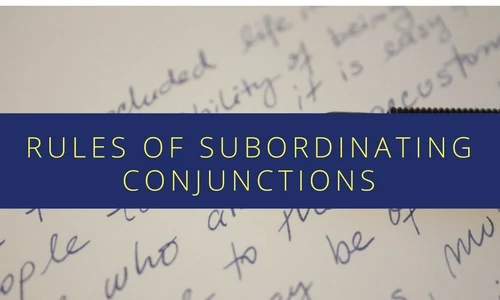
Correlative conjunctions join various sentence elements that. must be grammatically equal. The most commonly used correlative conjunctions are both ... and, either ... or and neither ... nor, hardly ... when , not
Correlative Conjunctions
1. Both ... and
She is both intelligent and liberal.
2. Either ... orI will either go for a picnic or take rest.
3. Neither ... nor
She is neither rich nor good honest.
She is neither rich nor good honest.
4. Hardly ... when
He had hardly begun to work, when it started raining.
5. No sooner ... thanNo sooner had I reached the station , than the train arrived.
6. Not only ... but also
She is not only clever, but also intelligent.
7. Rather ... than
I would rather go swimming than go to the hospital.
8. Scarcely ... whenScarcely had we left college, when it started to rain.
9. Whether ... or
Have you decided whether you will go there or not?
b) The resort contains open bars, swimming and a library.
Parallel Construction
Correlative conjunctions (both, and; not, but; not only, but also; either, or; first, second, third; and the like) should be followed by the same grammatical construction. Thus, whenever possible, parallel construction should be employed when correlative conjunctions are used. Many violations of this rule can be corrected by rearranging the sentence. The repetition of a particular grammatical construction is often referred to as parallel construction.
Examples –
a) I am neither happy nor excited.b) The resort contains open bars, swimming and a library.
In example (a), the two phases, neither happy and nor excited, show parallel construction.
In example (b), the three phrases open bars , swimming pools and a library also show parallel construction.
Correlative Conjunctions and Parallel Constructions
Parallel construction should always be employed when correlative conjunctions are used. In the following examples,
the correlative conjunctions are printed in bold type.
Examples -
a) She has both a good education, and she has good work habits. (Incorrect)
b) She has both a good education and good work habits. (Correct)
In example (a), both and and are followed by different grammatical constructions. So, it is an incorrect sentence. Both is followed by the phrase a good education; whereas, and is followed by the clause he has good work habits. The example (b). has been corrected by changing the clause "he has good work habits into the phrase good work habits."
b) She has both a good education and good work habits. (Correct)
In example (a), both and and are followed by different grammatical constructions. So, it is an incorrect sentence. Both is followed by the phrase a good education; whereas, and is followed by the clause he has good work habits. The example (b). has been corrected by changing the clause "he has good work habits into the phrase good work habits."
Some Specific Conjunctions
1. No/Not/Never Or
Use Not/Never/No in a sentence if an alternative conjunction is needed.
Use Not/Never/No in a sentence if an alternative conjunction is needed.
Examples –
a) I have no chair or stool.
b) I have never read about her or heard of her.
c) She does not speak or weep.
d) He did not say or write anything.
a) I have no chair or stool.
b) I have never read about her or heard of her.
c) She does not speak or weep.
d) He did not say or write anything.
2. However/But
However and but should never be used together in a sentence.
Examples –
a) But his behaviour, however has not changed. (Incorrect)
His behaviour, however, has not changed. (Correct)
Examples –
a) But his behaviour, however has not changed. (Incorrect)
His behaviour, however, has not changed. (Correct)
b) But that, however is not repairable. (Incorrect)
But that is not repairable. (Correct)
3. Though/Although/Even Though
Though/Although/Even Though are used to show a contrast between two clauses.
Example –
a) Our new neighbors are quite nice (this is good) though their two dogs bark all day long.
We can use though or although with no difference in meaning. Though (but not although) can come at the end of a sentence.
Example –
a) Our new neighbors are quite nice (this is good) though their two dogs bark all day long.
We can use though or although with no difference in meaning. Though (but not although) can come at the end of a sentence.
Example –
My new bike is really fast. I don’t like the colour, though.
Though (but not although) can also be used as an adverb.
Example -
I’m not good at reasoning, but I can help you with your geography, though, if you want.
The meaning of though is similar to however, but though is much more common than however in conversion.
Even though can be used to make the contrast between two clauses stronger.
Examples -
a) My father got back from work really late, even though he had promised to take mum to the cinema b) Although he is poor, yet he is honest.
Examples -
a) My father got back from work really late, even though he had promised to take mum to the cinema b) Although he is poor, yet he is honest.
4. Until / Unless
Until is used in reference of time while unless refers a condition .
Examples –
a) I will stay here until you return
b) He can’t succeed unless he works hard
a) I will stay here until you return
b) He can’t succeed unless he works hard
5. As / When / While
We can use, as, when or while in situations or actions that take place simultaneously.
We can use, as, when or while in situations or actions that take place simultaneously.
Examples –
a) As I was walking down the street I saw jack driving a jeep
b) The Telephone always rings when you are having a bath
c) While they were playing cards somebody broke into the house .
d) While you were reading the paper I was watching TV.
e) John cleaned the house while I watched TV
f) His father died when he was fourteen.
a) As I was walking down the street I saw jack driving a jeep
b) The Telephone always rings when you are having a bath
c) While they were playing cards somebody broke into the house .
d) While you were reading the paper I was watching TV.
e) John cleaned the house while I watched TV
f) His father died when he was fourteen.
6. Because / As / Since
‘Because’ , ‘As’ and ‘since’ are used to answer the question ‘why ?’
(i) They join two clause because in the same sentence
Examples –
a) I lost my job because I was often late
b) Ram resigned because he wanted to spend more time with his family
(ii). ‘Because ‘ , ‘As’ , and since show the relationship between the two clauses.
Examples --
a) Why did you resign from such a well paid job , Ram ?
b) Because I wanted to spend more time with my family .
As and since are used when the reason is already well known and / or less important ..
a) I lost my job because I was often late
b) Ram resigned because he wanted to spend more time with his family
(ii). ‘Because ‘ , ‘As’ , and since show the relationship between the two clauses.
Examples --
a) Why did you resign from such a well paid job , Ram ?
b) Because I wanted to spend more time with my family .
As and since are used when the reason is already well known and / or less important ..
(iii) ‘As’ or ‘Since’ clause often comes at the beginning of the sentence and is separated from the main clause by a comma.
Examples –
a) As my family had finished dinner when I got home, I went to this really good beer bar.
(I’m telling you about the beer bar . It’s not so important ‘why I went there )
a) As my family had finished dinner when I got home, I went to this really good beer bar.
(I’m telling you about the beer bar . It’s not so important ‘why I went there )
b) Since its your birthday. I’ll make your breakfast in bed.
(I’m going to make your breakfast. I know , and you know, its your birthday)
c) Since I have no money, I can’t go to the movie .


